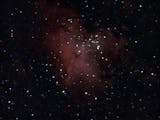Optolong L-eNhance Light Pollution Filter 1.25" Mounted (OPT-L-ENHANCE-125)
AS100296












Optolong L-eNhance Light Pollution Filter 1.25" Mounted (OPT-L-ENHANCE-125)
AS100296
Why Purchase from All-Star Telescope?
Free Expert Support
Whether you are a first timer needing help with setting up or an enthusiast that can't quite make that one thing work, our expert staff are ready to support your needs. With decades of knowledge and first hand experience we've been there and we can help you through it!
Stress Free, Secure Transactions
You can trust purchasing and delivery with All-Star Telescope. All of our transactions are 100% secure and Level 1 PCI DSS compliant thanks to Shopify's ShopPay platform. For additional protection, we insure 100% of the value of every shipment we make. If it get's lost during shipment, we replace it. If it gets damaged during shipment, we replace it. We make sure your product arrives exactly as you would expect it to; we promise.
We also ensure privacy protection. We never keep any of your credit card information on file and any of your personal data is stored according to our policies.
30 Day Return Policy
Buy with confidence knowing that we accept returns up to 30 days after purchase. We want you to have something you will actually use and we are confident that we keep good quality products in our store with No Junk.
Price Match Promise
Shipping around for the best price is tough, we make it easier by offering the best pricing in the market. But if you find a better price on an in-store item somewhere else we will match it!
Product Description
The relentless spread or urbanization and its associated light pollution have become a growing problem for all amateur astro photographers. The current solutions to the problem can be expensive and might include the purchase of a monochrome camera, several types of narrowband filters and a filter wheel.
Optolong L-eNhance provides an economical and practical solution for amateurs. It is a dual-band pass filter which has been designed for DSLR (digital SLR), colour CMOS and monochrome CCD cameras. The convenience and cost effectiveness of this filter allows amateurs to image a rich selection of astronomical images, even in bright, heavily light-polluted areas. Optolong believes the design of our L-eNhance filter is a technical innovation among filters. It effectively isolates the H-Alpha, H-Beta, and Oxygen III nebula emission lines and achieves a maximum transmission of up to 90%. The performance of this filter delivers images that superbly control the impact from light polluted skies.
Hydrogen is the largest, the most primitive, the simplest, and the oldest element in the universe. Scientists consider that Hydrogen amounts to more than 90% of visible substance in space. Our sun is 5 billion years old, but so far hydrogen is still the key matter of nuclear fusion. While the sulfur element does not have much scientific significance, so keeping H and O is meaning for exploration of life. Therefore, we highlight H-a, H-b, O3 and O2, and reduce the signal of sulfur.
Spectrum and Characteristic
- Substrate: B270
- Thickness: 1.85mm
- Tpeak: T>90%
- Blocking range: 300-1000nm
- Blocking depth: light pollution line blocking >99%
- Surface quality: 60/40
- Transmitted Wavefront RMS: λ/4
- Parallelism: 30s
Coating Technology
- Multi-layers anti-reflection coating
- Non-cementing optical substrate coating
- Optolong L-Pro filter adopts precision coating based on Ion-assisted deposition coating technology for durability and resistance to scratching, as well as stability on CWL(central wavelength) no deviation affected by temperature change.
- Planetary rotation system offers precision and homogeneity of coatings ensuring high value on transmission of pass-band and Optical density of off-band.
Warm Prompt
- About colour: due to the influence of ambient light, colour difference of the display and flash photography, the colour of the product may have some colour difference. Detailed colour is in accordance with the final product.
- About coating: the interference filter will show different colours under different light, which is a normal phenomenon. Please refer to the material object.
- About the style: in order to improve the product, the change of design/appearance/parameters has not been updated in time. Please see the subject produce.
- About the description: the series of this product have the same material, technology and design, different sizes only, please note.
What's in the Box
- Outer Box: sliver box
- Plastic Box: PP material
- Lining: imported high pressure white EVA material
Specifications
Additional Articles, Videos, and Links
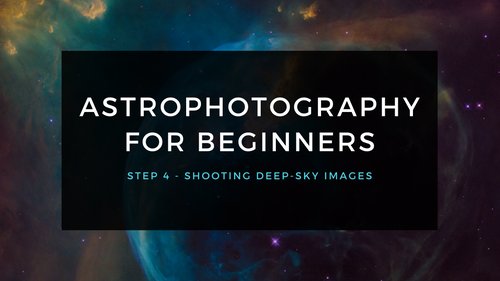
Astrophotography for Beginners Step 4: Shooting Deep-Sky Images
Taking deep sky pictures can be daunting, luckily there is an easy process to follow to allow you to get great shots! Here is the typical process for actually taking deep-sky images in the field.
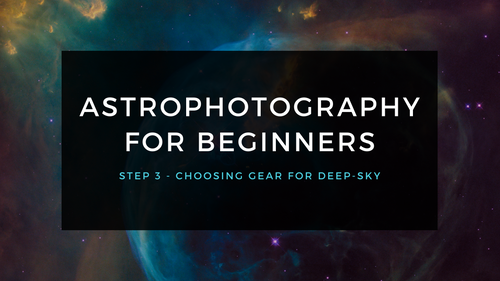
Astrophotography for Beginners Step 3: Choosing Gear for Deep-Sky Imaging
Using a star tracker gains you experience with the fundamentals of deep-sky imaging. Shooting the Moon gains you experience focusing and framing through your telescope. Through your sessions you’ll...
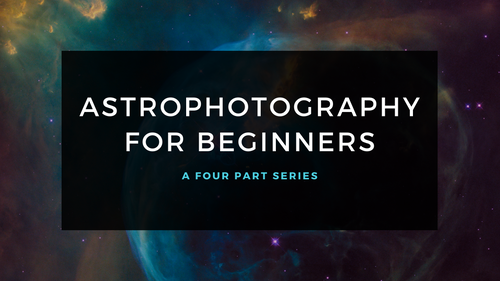
Astrophotography for Beginners - Start Here: Getting into Astrophotography Step by Step
Shooting the night sky has never been more popular, nor easier. The choice of equipment has also never been better, or more affordable. However, as per the advice given by Dickinson and Dyer in the...
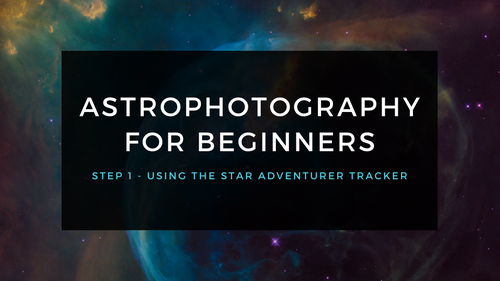
Astrophotography for Beginners Step 1: Using the Star Adventurer Tracker
By far the most economical and easiest way to capture beautiful images of the Milky Way and large deep-sky objects like the Andromeda Galaxy (shown here) is to use a star tracker. Here are steps an...
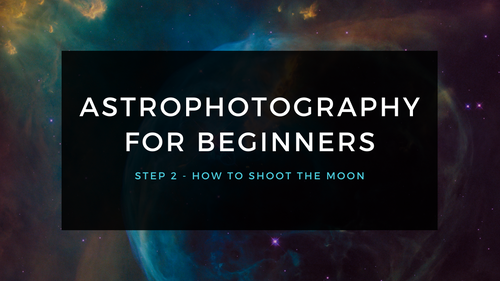
Astrophotography for Beginners Step 2: How to Shoot the Moon
Close-ups of the Moon are rewarding, and an easy way to learn to shoot through your telescope. While good results are possible with a phone camera clamped to an eyepiece (as shown below), this tuto...


